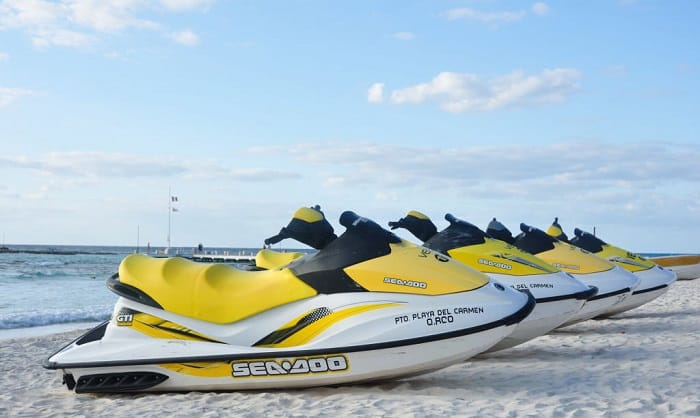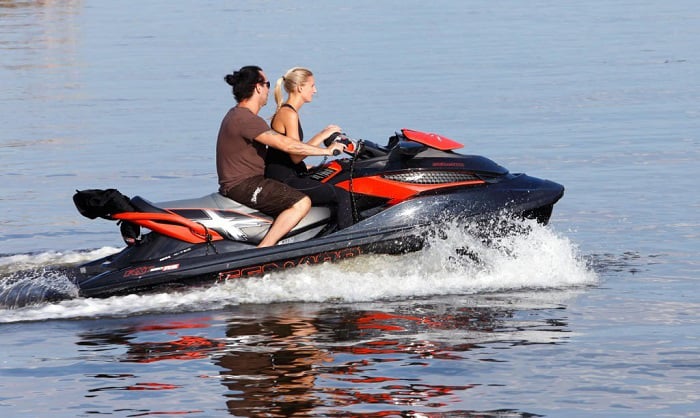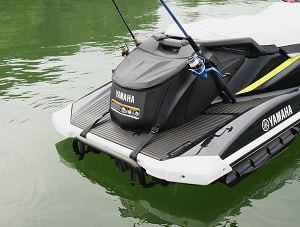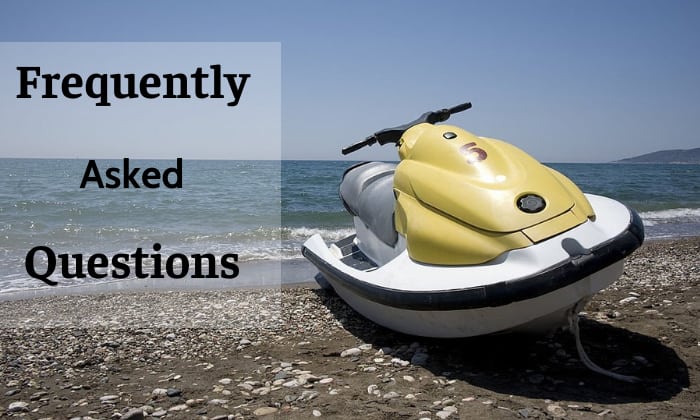Many arguments have been made in favor of going for either a standard boat or a PWC as an option for first-time boaters. In order to truly differentiate one from the other, we need to know what specialized watercraft boats are.
So what is a PWC boat? “PWC” stands for ‘personal watercraft.’ PWC boats are used for recreational activities, fishing, law enforcement, and rescue. Think of Sea-Doos and WaveRunners you come across at a beach visit.
Commonly, they’re stand-ups or sit-downs, denoting how they’re ridden. Their high-performance jet propulsion engines provide the coveted thrill factor.
Table of Contents
A Brief History of Personal Watercraft
Clayton Jacobson II is credited as being the first person to develop personal watercraft out of the earlier models created in Europe back in the 1950s. They were officially called water scooters and, over time, jet skis.
If there’s a brand pivotal in the historical development of the modern jet ski, it’s Kawasaki, which happened to earn license from the inventor himself. They developed this PWC to provide a completely “new aquatic experience”, which is in line with its main modern definition.
They released it in the 1970s and, thus, the first modern jet ski was born. Incidentally, it was a stand-up type. From there, rival companies emerged, not least of which are Sea-Doo, Yamaha, Krash Industries, and Belassi Burrasca.
This healthy competition ensured more choices and variations for people who enjoy rip-roaring rides while boosting their balancing abilities in the process.
Of course, the advent of jet skis designed for fishing like the Sea-Doo Fish Pro and the Kawasaki Ultra LX only made PWCs more popular in most recreational boating and fishing circles worldwide.
A PWC’s Design and Propulsion System Explained
So how exactly do we get to enjoy those exhilarating turns and that inimitable excitement every time we rev up our PWCs? Well, if we’re going to base it on the name alone, jet skis are essentially water rockets.
How they propel you forward can be summed up by Newton’s Third Law of Motion. The engine pushes the stream of water it pulls in one way, which then creates the force necessary to push the entire craft forward.
- The water jet is driven by an impeller or jet thruster with rotating blades and a wide tube setup. This allows it to create the Venturi effect, which takes water in towards the rotating blades and forces it out through a small opening or nozzle.
- Most modern jet skis use a gasoline-run 4-stroke aspirated engine and motor to power their impellers. They usually have 900 to 1800 CC. Don’t be surprised if you still come across older PWC models that top at only 800 CC, though.
- The hulls are designed with a V shape so you can plane with ease and enjoy a smooth ride once you reach top speed. Those with heavier, deeper hulls handle rough waters best.
Types of PWC
According to your position when riding, they are categorized as such:
1. Stand-up
These are sportier and allow you to do daredevil stunts like backflips while riding them. That said, they take a while to master, especially if you’ll be riding them for that purpose.
One perk is that they’re usually cheaper than their sit-down counterparts and are arguably easier to maintain. They’re more versatile and tend to be lightweight.
2. Sit-down
These are the most popular options nowadays, meaning they’re safer and more amenable to casual riders. Take note that most of the fastest jet ski models in the market fall under this category.
As for pros, they usually have a large enough size to accommodate up to two or three riders. Most of the minor variations, especially those meant for special purposes like sport fishing and law enforcement, in jet skis tend to be sit-down.
The types of personal watercraft available can be classified beyond how you’re positioned while riding it and recreational purposes.
3. Fishing
This includes any jet ski outfitted with nifty fishing gear and features, such as built-in fish finders, fish coolers, and rod holders. You can even use a trolling mode in some models, which allows it to run slowly as you wait for that hook, line, and sinker you’re hankering for.
4. Performance-oriented or Modified Variations
What’s great about some kinds of PWC like the WaveRunner, is that they can be easily modified and upgraded. The fastest incarnation of that brand of jet ski is actually an altered version.
FAQs
1. What type of vessel is a PWC?
I get asked these questions quite frequently, “Personal watercraft are considered what type of vessel?” and “The U.S. Coast Guard considers personal watercraft what kind of boat?”
The U.S. Coast Guard classifies it as a Class A inboard boat since it spans less than 16 feet. You will have to adhere to guidelines set for those vessels, such as having a fire extinguisher and tools for sound signaling.
2. Are stand-up jet skis still being made?
Yes. As far as brand options go, though, you’re limited to only Krash, Kawasaki, and Yamaha.
3. Are PWCs better than boats?
I would have to say that personal watercraft trumps standard Jon boats and pontoon boats in two key factors: speed and the workout. If you can’t get enough of the speed that these aquatic rockets can achieve, it’s easy to pick them over other personal vessels.
Moreover, studies show that jet skis not only improve balance but also have a way of improving your overall heart health by boosting circulation.
Conclusion
A PWC will always provide a fun, unique experience for people who want to have a more adrenaline-charged vacation when they hit the beach. PWCs have had a relatively colorful history and now come in numerous types and variations, which only ups the excitement and their practical uses.
We hope that by knowing the answer to “what is a PWC boat?”, we’ve given you a clear view of how these vessels work and what differentiates them from traditional boats.
In addition, I would like to recommend for you some articles about boat explanations:
- What to Know About a Duffy Boat
- Fishing Jon Boat: Characteristics, Advantages and Disadvantages
- Basic Learning Guide About Tender Boat

“My intention from the first day establishing Boating Basics Online is to provide as much help as possible for boaters who want to experience a first safe and convenient trip. So feel free to join us and share your beautiful journeys to the sea!”






